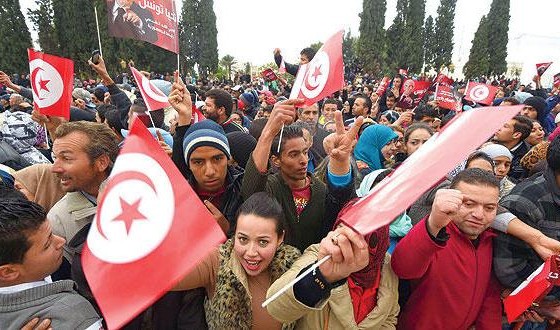Last week, the Nobel Peace Prize for 2015 was awarded to a group of Tunisian civil society leaders — the National Dialogue Quartet — for their “decisive contribution to the building of a pluralistic democracy in Tunisia.”
The Nobel Committee has been derided in previous years for its choice of honorees, including the decision to award US President Barack Obama a Peace Prize just eight months after he assumed office in 2009. Geir Lundestad, the secretary of the committee at that time, later admitted he regretted the decision.
